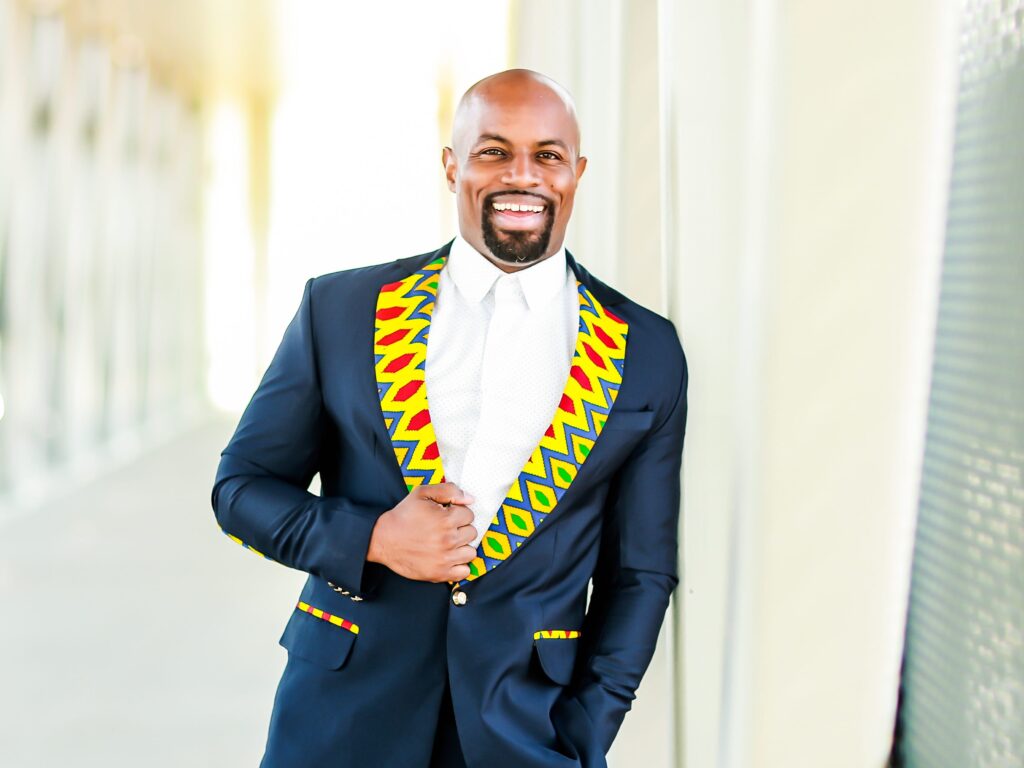- My father was absent throughout most of my life, so I went to Ghana to confront him about it.
- In Ghana, I learned about my father's past and understood his perspective for the first time.
- Although we will never be close, the conversation healed our relationship and taught me empathy.
A few years ago, I visited my father in Ghana and asked to hear his story about why he was an absent parent. This conversation helped me heal, forgive, and transform how I view disagreements today.
At the time, I had a lot of built-up resentment and anger toward my dad. In my mind, he stopped making a meaningful effort to see me or show up for me after he remarried. He and his new family lived in Kenya, Ethiopia, and Finland — while my mom, my brother, and I initially struggled with being unhoused and being on welfare here in the US.
I dealt with a lot of feelings of rejection, which I'd reflected on and worked through in therapy during my 20s. But in my 30s, it all came back, and I needed to deal with it head-on.
I decided to meet with my father to talk things through
There were times when I'd be driving, and I'd find myself weeping, questioning what I'd done to cause him not to fight for me. It was clear his rejection of me was still affecting the way I move about the world.
During a leadership training program, my cohort and I discussed our origins. I shared with the cohort that I had an upcoming trip to Ghana, and I had plans to confront my father.
Politely, a cohort member raised their hand. "Hey, what would it look like if you took a different approach?" he asked. "We all have empathy for each other because we know each other's stories."
I felt my heart rate quicken and my jaw clench in defensiveness. Despite my defensiveness, his words planted a seed that I brought up with my therapist. Together, my therapist and I started preparing for how I would turn my "confrontation" into a "conversation" with my father.
When the time came for my kids and me to travel to Ghana, I asked my father for one-on-one time and broached the topic.
"Hey, Dad, I never really heard your story. What was life like growing up for you, and what happened between us?"
My father told me about his journey with his dad, his custody struggles, and the interpersonal conflicts between him and my mother. Eventually, he explained that he concluded: "Justin will come find me when he's ready."
I also asked my father to share his experiences growing up
My father grew up in Ghana, and his own father was only a kid at the time. My father also left his entire family for boarding school at 14 years old, and at 16, he left Ghana to come to the US.
Hearing this story, a lump formed in my throat as I felt — for the first time — empathy for my dad. I wonder how he felt as a little boy.
Fully immersing myself in my dad's story wasn't easy. It was challenging to remove my biased perspective of anger and distrust. I pushed myself to engage from a place of curiosity and ask him questions as if I was a student.
Hearing my dad's story helped me understand
At the end of our conversation, I told my father I disagreed with his approach but understood how he arrived at his conclusion. We hugged, and my father told me he was proud of me, which I never heard growing up.
This conversation did not transform us into a father-son duo holding hands and walking into the sunset. My dad's decision not to fight for a place in my life robbed both of us of father-son experiences that we can never get back.
However, this conversation gave me access to my heritage, Ghana, which I'd previously avoided. This allowed me to get involved in social entrepreneurial projects, like working with an elementary school and hiring and training Ghanaian staff members.
It also gave me access to an incredible mentor, my father. Previously, I avoided my dad. Now, I actively seek him out, particularly when I need feedback on a project.
Perhaps most importantly, this conversation taught me a profound lesson I now apply to every area of my life. I learned that when we do not seek to understand and respect the person we disagree with, it only hurts us.
That day, if I had chosen to confront my father from a place of vitriol and anger, his rejection would still haunt me, and I would have never learned the powerful lesson that every person has a story that shapes who they are today.
